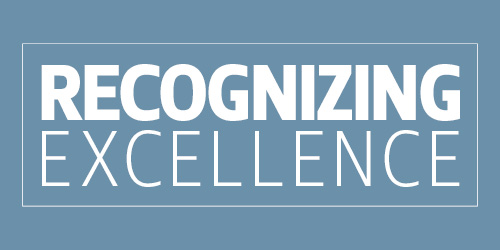
verb (used with object), rec·og·nized, rec·og·niz·ing.
- to identify as something or someone previously seen, known, etc.: He had changed so much that one could scarcely recognize him.
- to identify from knowledge of appearance or characteristics: I recognized him from the description. They recognized him as a fraud.
- to perceive as existing or true; realize: to be the first to recognize a fact.
- to acknowledge as the person entitled to speak at a particular time: The Speaker recognized the congressman from Maine.
- to acknowledge formally as entitled to treatment as a political unit: The United States promptly recognized Israel.
- to acknowledge or accept formally a specified factual or legal situation: to recognize a successful revolutionary regime as the de facto government of the country.
- to acknowledge or treat as valid: to recognize a claim.
- to acknowledge acquaintance with, as by a greeting, handshake, etc.
- to show appreciation of (achievement, service, merit, etc.), as by some reward, public honor, or the like.
- Law. to acknowledge (an illegitimate child) as one’s own.
- Biochemistry, Immunology. to bind with, cleave, or otherwise react to (another substance) as a result of fitting its molecular shape or a portion of its shape.
verb (tr)
- to perceive (a person, creature, or thing) to be the same as or belong to the same class as something previously seen or known; know again
- to accept or be aware of (a fact, duty, problem, etc)to recognize necessity
- to give formal acknowledgment of the status or legality of (a government, an accredited representative, etc)
- mainly US and Canadian to grant (a person) the right to speak in a deliberative body, debate, etc
- to give a token of thanks for (a service rendered, etc)
- to make formal acknowledgment of (a claim, etc)
- to show approval or appreciation of (something good or pleasing)
- to acknowledge or greet (a person), as when meeting by chance
- (intr) mainly US to enter into a recognizance
early 15c., “resume possession of land,” back-formation from recognizance, or else from Old French reconoiss-, stem of reconoistre “to know again, identify, recognize,” from Latin recognoscere “acknowledge, recall to mind, know again; examine; certify,” from re- “again” (see re-) + cognoscere “know” (see cognizance). Meaning “know again, recall or recover the knowledge of, perceive an identity with something formerly known or felt” first recorded 1530s. Related: Recognized; recognizing.
 Liberal Dictionary English Dictionary
Liberal Dictionary English Dictionary